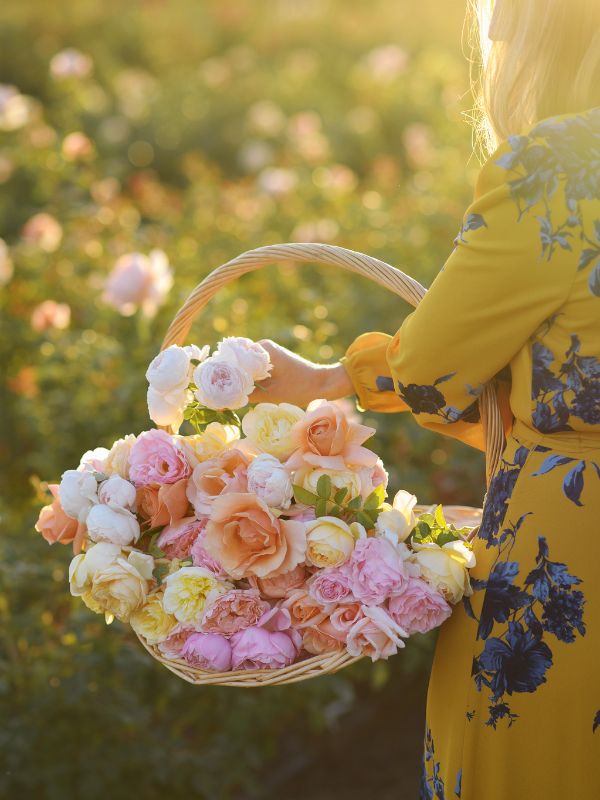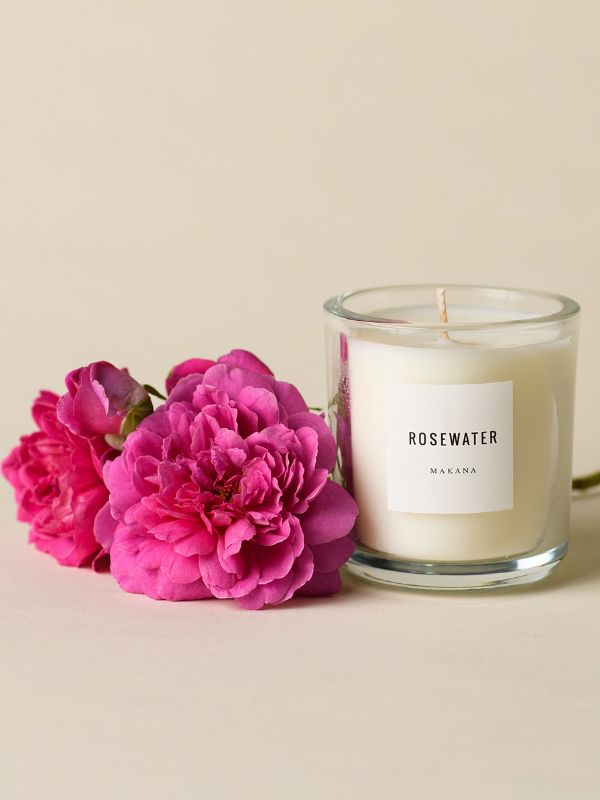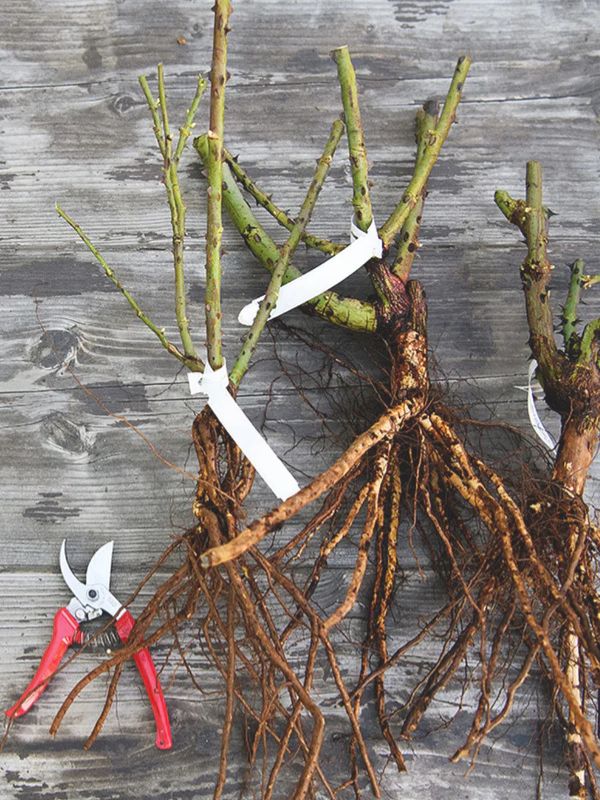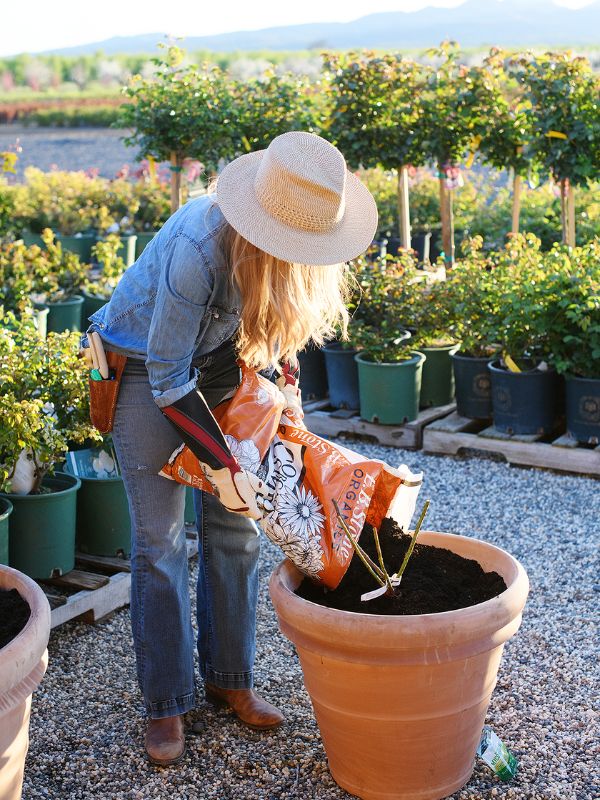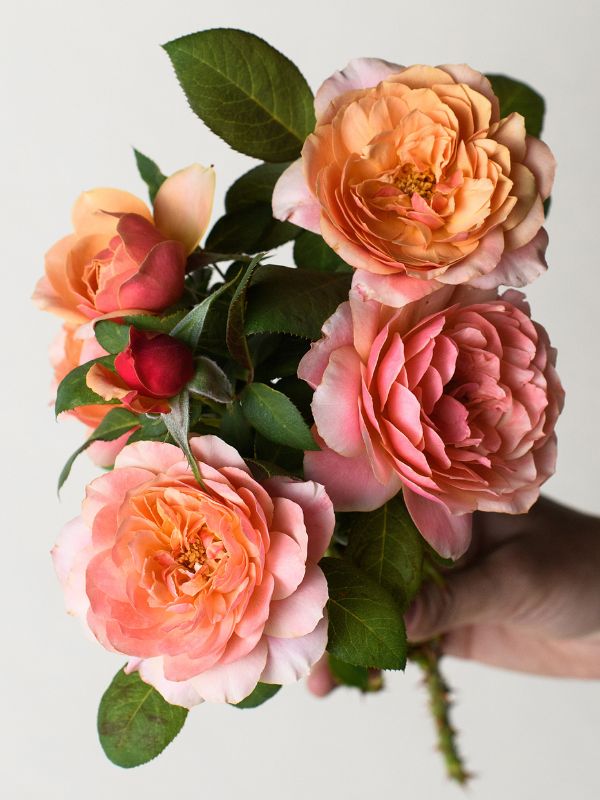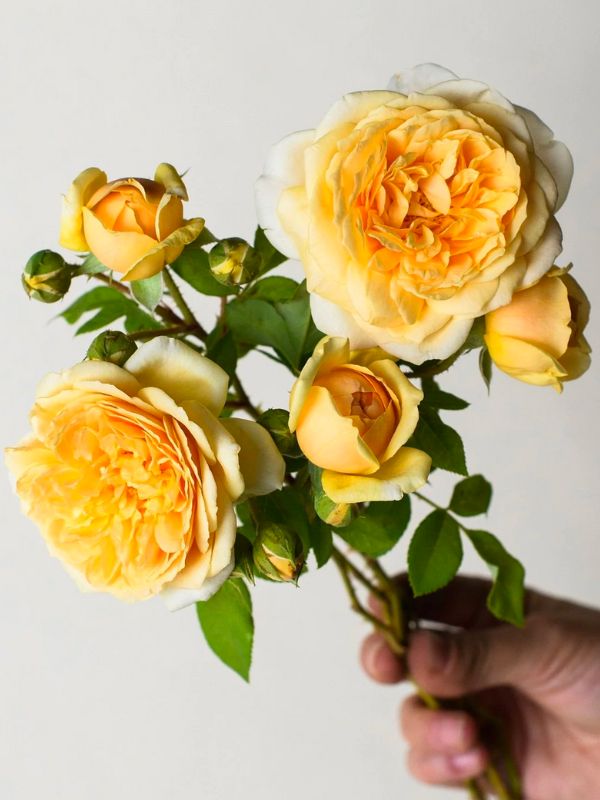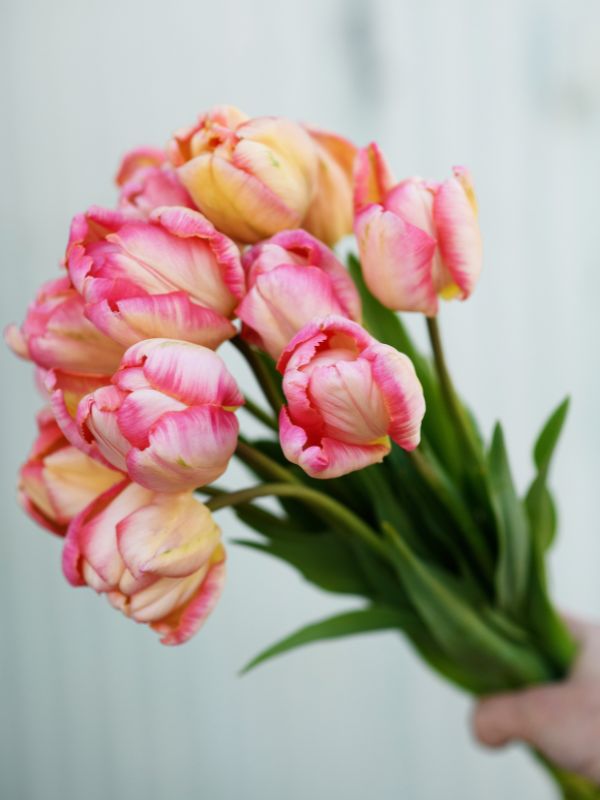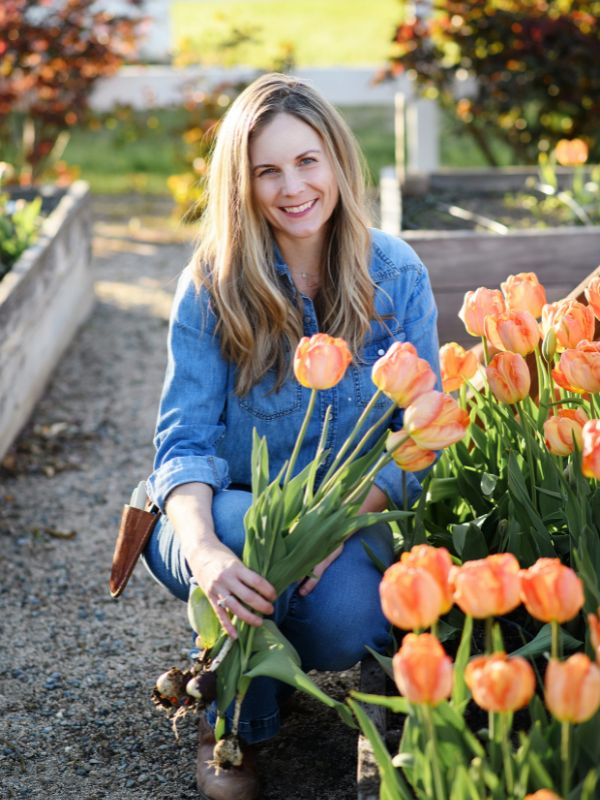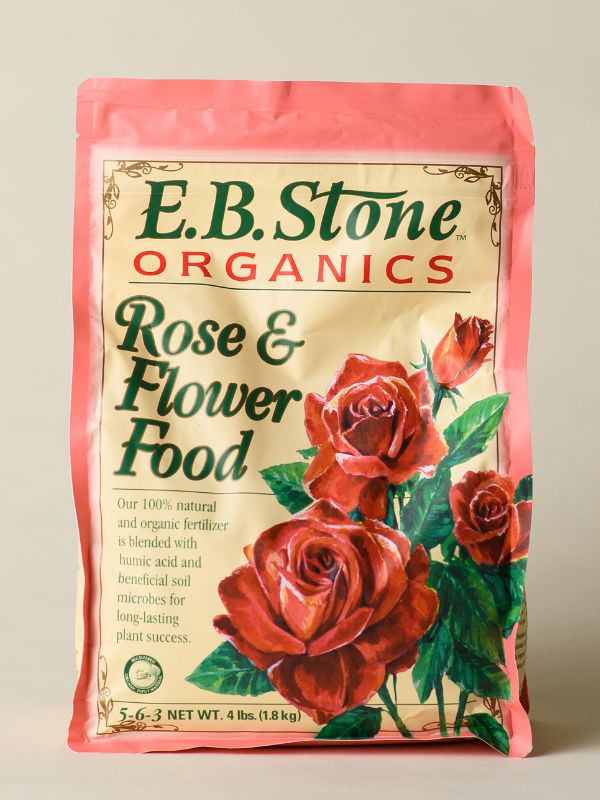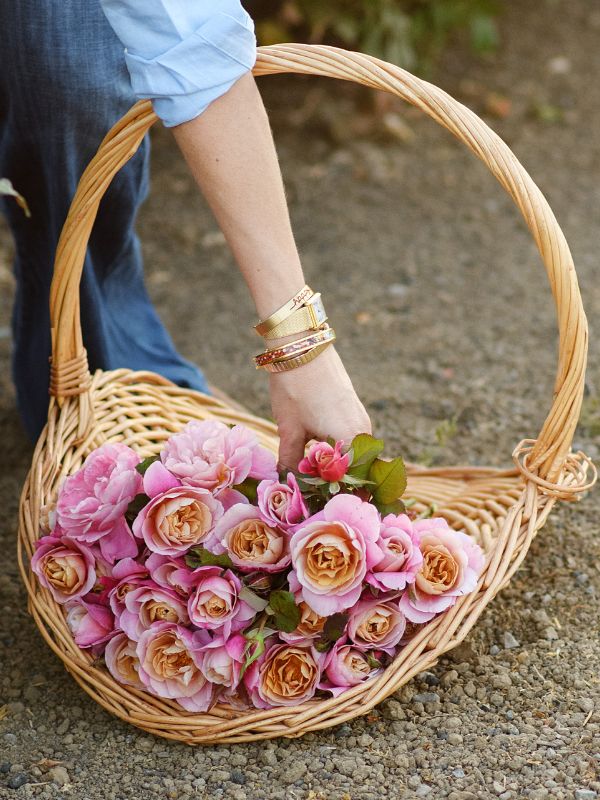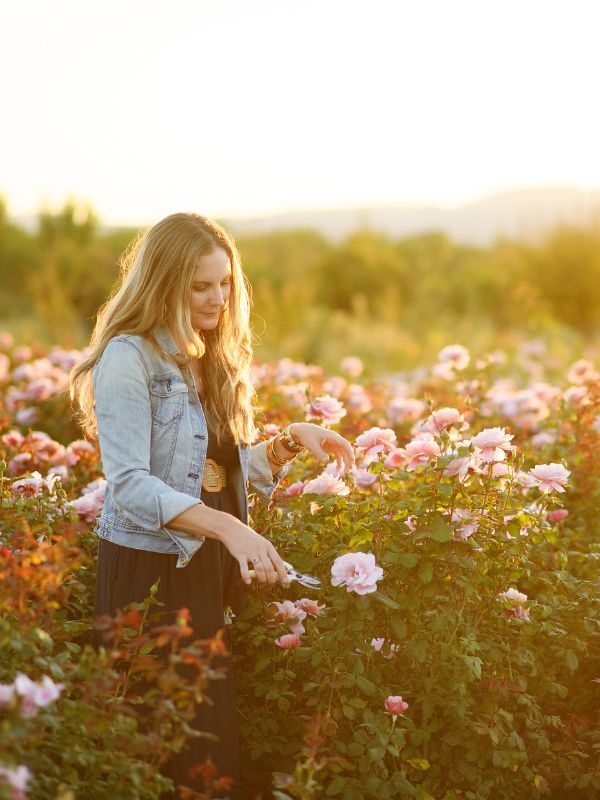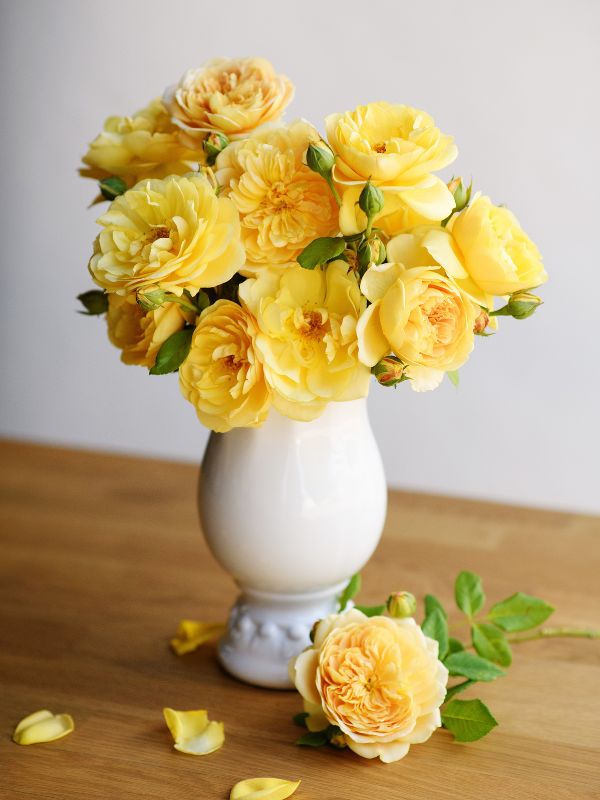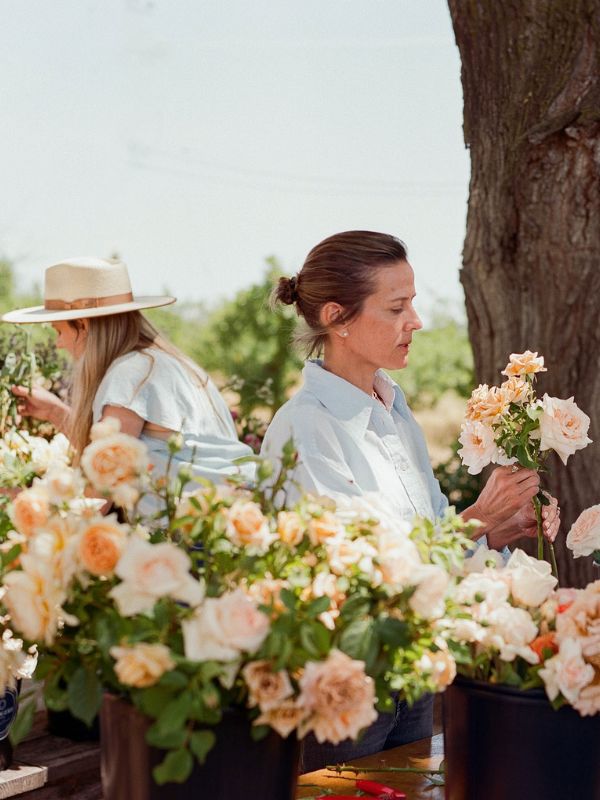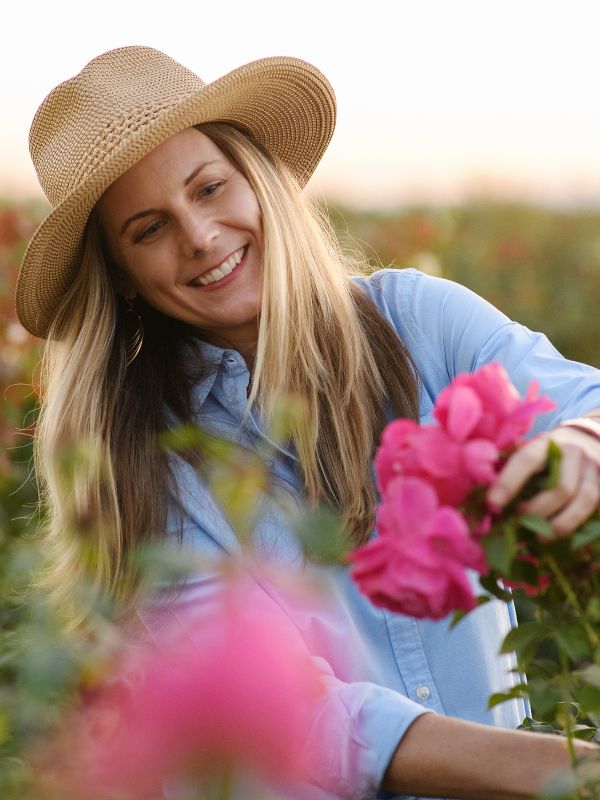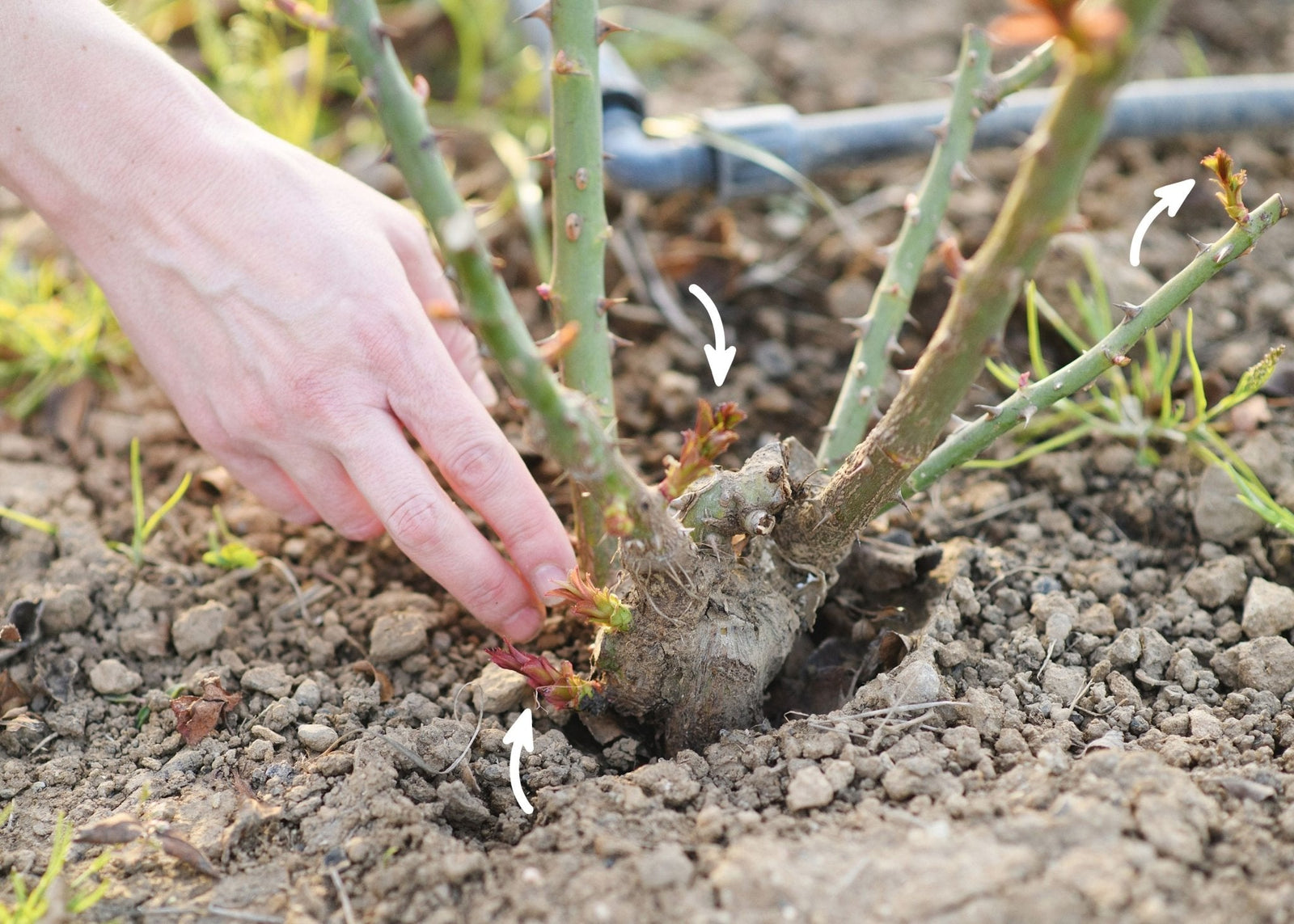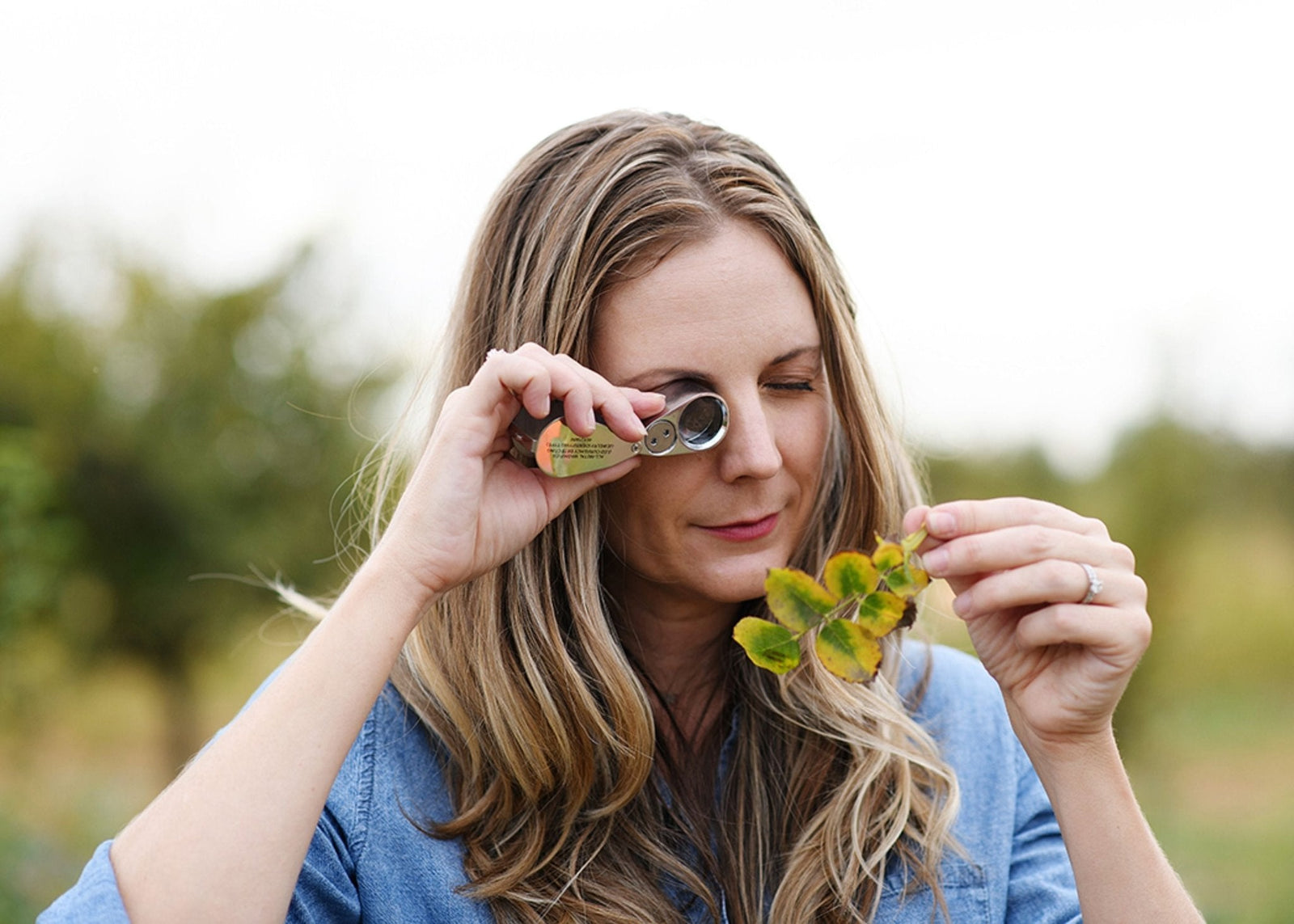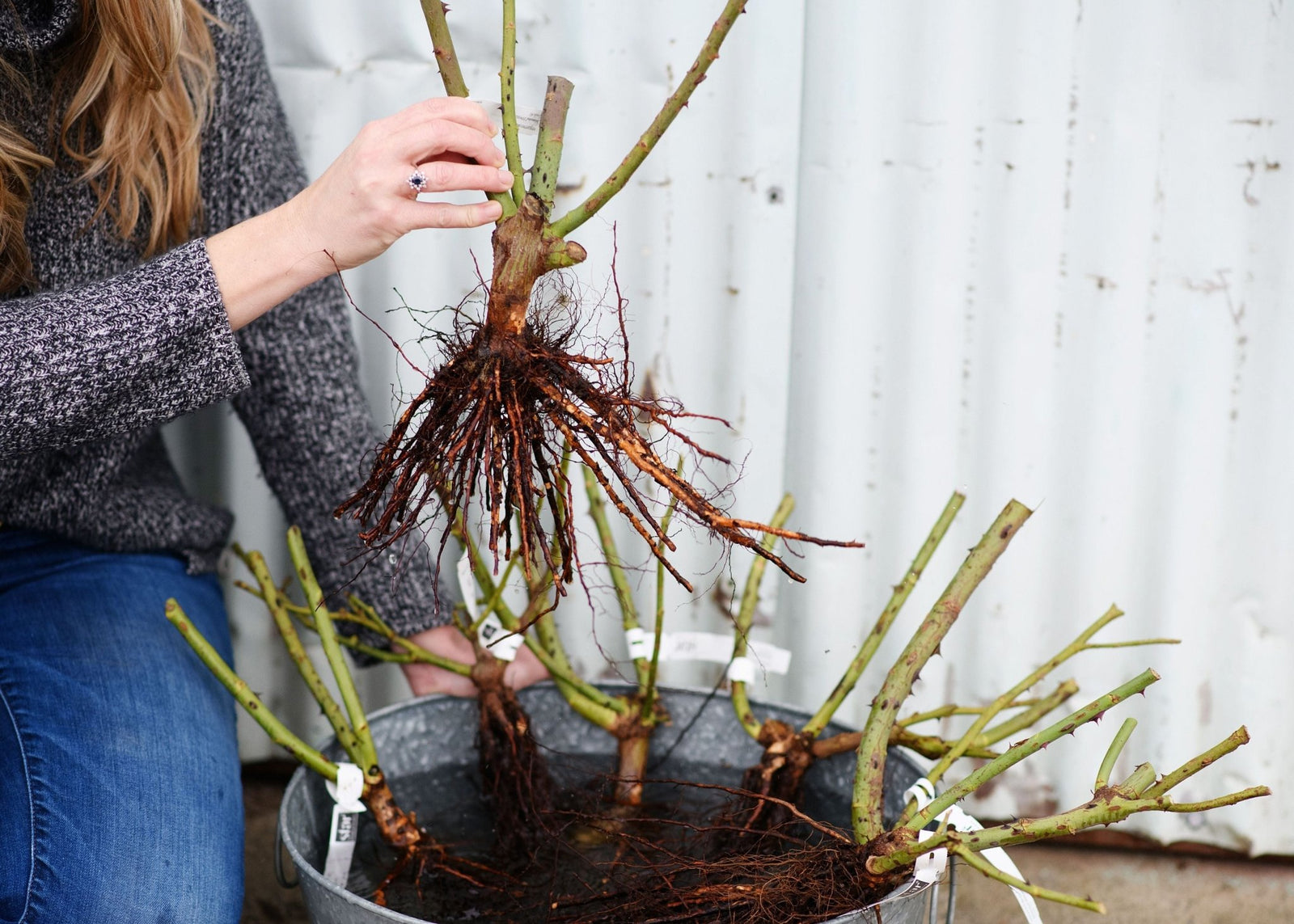Happy April! I'm so excited to kick off this month's theme: Spring Rose Care. Over the next few weeks, we're diving into everything you need to know to keep your roses healthy during the spring months. We'll cover fertilizer, pests, diseases, irrigation, and even planting potted roses. Let's make your garden the envy of the neighborhood!
This week, we're starting with
fertilizer. If you've been following along, you might remember we talked about fertilizing first-year bare root roses a few weeks ago (missed it?
Catch up here). Today, we're getting into the nitty-gritty of fertilizing ALL roses both established & those planted in pots so you can develop the best fertilizing routine for your garden or farm.
Do You Actually Need Fertilizer?
Here's the truth:
not every rose garden needs fertilizer—shocking, right? If your soil is well balanced and you add compost every year, your roses might not need any extra help, or maybe just one spring application.
But if you're growing roses for cutting, fertilizer will likely be a part of your yearly health and care routine for your roses so they can produce top quality blooms for you to sell.
Pro tip: Always test your soil before reaching for fertilizer. A good soil test will tell you exactly what your garden needs (and what it doesn't). Need a recommendation? This
Soil Test Kit is my favorite. Want to learn more about soil testing? Check out my
newsletter from last week for a deeper dive. Don't fertilize just for the sake of throwing something in the soil. Let the test results guide you.
Types of Fertilizer
There are two main types of fertilizers to choose from:
-
Organic Fertilizers: Made from natural sources like bone meal, alfalfa meal, fish emulsion, or blood meal.
-
Synthetic Fertilizers: Manufactured chemically and typically have higher nitrogen levels. They're fast-acting and stable but can damage plants if not applied correctly.
Both types are effective—you just need to choose what works best for your goals.
Decoding Fertilizer Labels
Every fertilizer label includes three numbers, like 10-8-8. These represent the percentages of nitrogen (N), phosphorus (P), and potassium (K), always in that order.
-
Nitrogen: Helps with leafy, healthy growth.
-
Phosphorus: Supports strong roots and blooms.
-
Potassium: Promotes overall plant health.
Take a moment to read the ingredient list too. Look for high-quality fertilizers with beneficial extras like alfalfa meal, kelp, or mycorrhizae blended in.
Methods of Fertilizer Application
There are three main ways to apply fertilizer to your roses: liquid, foliar, and granular (dry). Each has its own benefits, depending on your garden size and setup.
1. Liquid Fertilizer
Liquid fertilizers are mixed with water and applied directly to the base of your roses. They work well for smaller rose gardens (fewer than 20 plants) but can be tedious for larger setups unless you have a drip irrigation or fertigation system, which feeds the plants through water lines. This method is great for targeted feeding but less practical for bigger gardens without automated systems.
2. Foliar Fertilizer
Foliar feeding involves spraying a nutrient solution directly onto the leaves for fast absorption. Be sure to spray until the foliage is shiny (not dripping), and don't forget to coat the undersides of leaves for maximum effectiveness. Avoid spraying when temperatures exceed 80°F, as this can burn the leaves. For small gardens (under 50 plants), a hand sprayer is sufficient, while larger collections may benefit from a gas- or battery-powered backpack sprayer.
3. Granular Fertilizer
Granular (dry) fertilizers are easy to use and ideal for slow-release feeding. Sprinkle the granules around the base of the plant, covering the root zone (an area roughly equal to the spread of the rose canes). If mulch is present, scrape it back before applying the fertilizer and replace it afterward. Remember, dry fertilizers need water to activate. Apply them just before a rainstorm or water thoroughly if rain isn't expected.
You can find all of these fertilizer options at your local garden center, many of which come as convenient all-in-one products with added insecticides and fungicides. Always read the labels carefully, follow instructions for application rates and wear the recommended protective gear for safety.
What Fertilizer is Best?
Well, let me tell you—
there's no single “perfect” fertilizer, but there are some amazing ones that work differently depending on their ingredients, how you apply them and what nutrients your soil and plant needs. For example if your soil test shows low nitrogen then a fertilizer higher in nitrogen would be helpful. If you have too much nitrogen and need phosphorus for larger bloom production then look for a fertilizer higher in P. Over the years, I've tried a ton of options on the farm, and
these are my go-to picks for keeping your roses happy, healthy, and blooming beautifully for years to come.
Liquid & Foliar Fertilizers
Granular Fertilizers
How Often To Apply
I know I sound like a broken record about using soil tests to guide fertilizer applications—it's true! But since adding one more task to your gardening list can be challenging, here's a general fertilizer program you can follow in the absence of soil test results.
Begin with a granular fertilizer application in the spring when your roses show the first 2–3 inches of growth or new leaf sets. Continue applying granular fertilizer every 6–8 weeks throughout the growing season until 6–8 weeks before your first expected frost date. If using a slow-release fertilizer, be sure to check the product label for application frequency, as it may require a longer interval between applications.
Supplement with foliar or liquid fertilizers as needed. Special note: Potted roses can follow the same annual fertilizing schedule as roses planted in the ground. However, fertilizers in pots tend to leach more quickly through the soil and drain out of the bottom. To ensure your potted roses thrive, monitor their growth closely and apply additional fertilizer as needed, based on how the plant develops throughout the season.
This week's action step look at your soil test results and do some research to select a
fertilizer(s) for your garden. Grab you preferred product
online or at your favorite local nursery so you are ready to go for the season. Whether you're growing a cutting garden or simply want to enjoy stunning blooms, giving your roses the nutrients they need will make all the difference for a season filled with abundant blooms.
Next week, we'll continue our Spring Rose Care series by tackling common rose diseases, so be sure to check your inbox next Sunday. I can't wait to see your gardens flourish this spring. Until next time, happy gardening!




